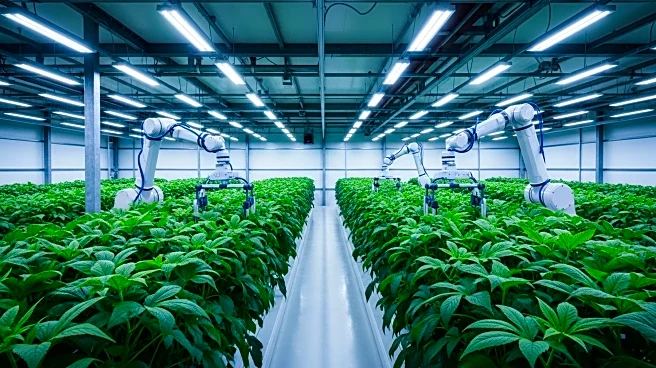What's Happening?
Yuma, Arizona, known as the 'Winter Lettuce Capital of the World,' is a major agricultural hub in the United States. The region's climate allows for year-round farming, particularly during winter months, supporting a diverse range of crops such as lettuce, broccoli, cauliflower, spinach, and melons. Agriculture is a key economic driver in Yuma, generating billions in revenue and supporting thousands of jobs. The job market in Yuma's agriculture sector is evolving, with roles ranging from field workers to advanced management and technology-based positions. The integration of technology, such as satellite monitoring and precision agriculture tools, is reshaping the workforce, increasing demand for technical skills and offering stable employment opportunities.
Why It's Important?
The agricultural sector in Yuma is crucial for the U.S. food system, providing a significant portion of the country's leafy vegetables during winter. The adoption of technology in agriculture is enhancing productivity and efficiency, creating new job opportunities and requiring workers to develop digital skills. This shift is important for the local economy, offering stable employment and career growth. As technology-driven roles grow, Yuma's agriculture sector is expected to expand, providing more full-time, year-round positions. This evolution supports Yuma's long-term outlook as a leader in American food production and a destination for rewarding careers in farming and technology.
What's Next?
As Yuma's agriculture sector continues to integrate technology, the demand for skilled workers in satellite imagery analysis, drone piloting, and data interpretation is expected to rise. Local employers and government are working to improve job quality, training opportunities, and living conditions for agricultural workers. Workforce trends indicate stable job growth, improved wages, and enhanced workplace conditions, powered by sustainability and digitalization. This agricultural evolution supports Yuma's long-term outlook as a leader in American food production and as a destination for rewarding careers in farming, technology, and resource management.









